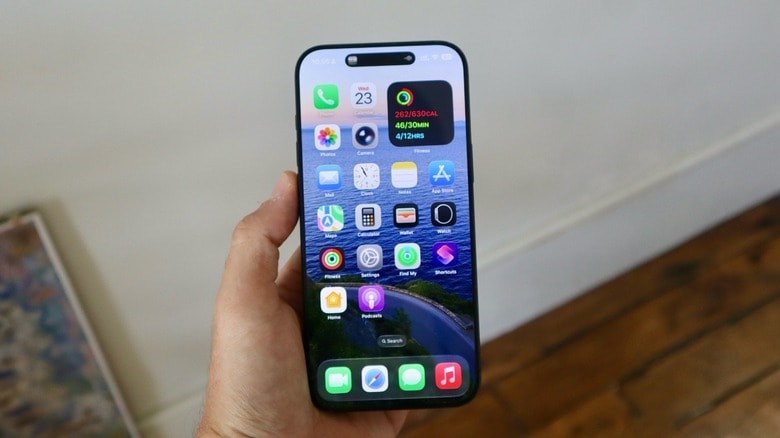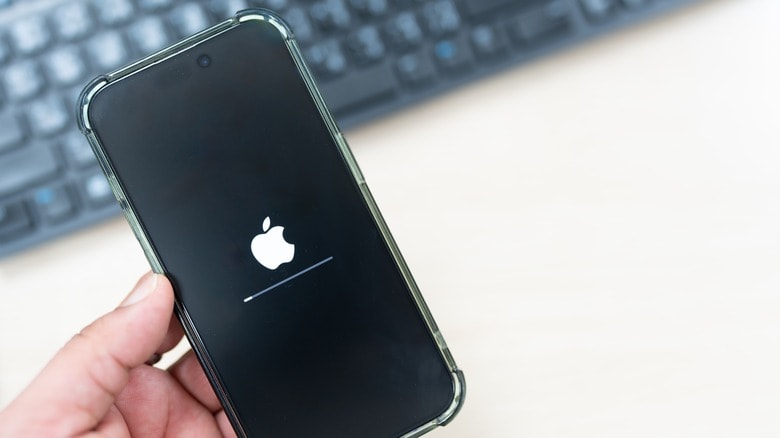4 warning signs your iPhone is being tracked
If your iPhone suddenly slows down, battery life drops significantly, or apps appear that you never downloaded, it could be a sign that your iPhone is being tracked.
Although Apple's iOS operating system is considered one of the most secure mobile platforms today, that does not mean users are completely immune to the risk of hacker attacks.
In reality, bad actors often exploit vulnerabilities that come from careless behavior, such as clicking on malicious links, downloading fake documents, or opening messages from strangers. However, sophisticated and targeted attacks are often not aimed at ordinary users, but rather at individuals with great influence, such as politicians, journalists, or celebrities.

However, if you are concerned that your iPhone may be being tracked, it is essential to be able to identify the early signs of anomalies. These warnings include symptoms such as the device overheating, rapid battery drain, to more serious situations such as the device constantly restarting itself.
It’s important to note that these signs don’t always mean you’re being spied on, and could also be the result of old hardware or over-exploited devices. However, being proactive and learning about common warning signs can help you add an extra layer of protection to your personal data.
1. iPhone battery drains abnormally
One of the most subtle but noticeable signs that your iPhone may be at risk for security is an unusually low battery. Imagine your phone, which was normally running smoothly, suddenly starts draining battery quickly without you being able to find a clear reason. In many cases, the cause could be spyware running silently in the background, constantly sending your location data or personal information to the bad guys.
To determine, you can go to theBatteryin the appSettingto check which apps are consuming unusually much power. If you find any suspicious signs, deleting that app immediately is a necessary step.
Additionally, the recently added Security Indicator feature by Apple is also a useful layer of defense. When the indicator light icon appears in the upper corner of the screen, such as green for camera, orange for microphone, and blue for location, you should be alert, as it may be a sign that these access rights are being misused.
However, a rapidly draining battery doesn’t always mean you’re being monitored. Factors like a weak network signal, too many apps running in the background, or a bug from a recent iOS update could also be the culprit. So, keeping track of your usage habits and examining the cause can help you distinguish between real warning signs.
2. iPhone heats up abnormally
An iPhone that feels unusually hot, even when not in use, can be a serious warning sign. It could be caused by malware or hidden apps running in the background, especially sophisticated spyware, keeping the device running all the time. To check, you should go toBatteryin the appSetting, pay special attention to the sectionBackground activityunder each application to determine which is the energy draining and overheating factor.
However, this doesn't always mean you're being tracked. Your iPhone could be heating up due to charging, playing games, streaming, using maps in the background, or running heavy social media apps.
Additionally, Apple’s automatic processes like photo indexing or iCloud backups also make the device work harder. Users also need to pay attention to their surroundings, because charging in hot conditions or using a case that is too tight can easily cause the device to overheat.
3. Strange pop-up windows appear
Strange pop-ups on your iPhone, especially when they have nothing to do with web browsing, can be a red flag. They could be a trick hackers use to trick users into installing malicious profiles via fake websites, dangerous QR codes, or specially designed phishing attacks.
Once an unauthorized profile is installed, your iPhone is at risk of being tracked, as they often come with fake security certificates and can enroll the device in a Mobile Device Management (MDM) system. This opens the door for attackers to remotely install apps, access your data, and monitor your activities.
To protect yourself, go toSetting>General settings>VPN & Device Management and Check Profiles. If you find any unfamiliar entries that are not part of your work or familiar VPN, delete them immediately. However, make sure they are not legitimate profiles set up by your business or organization to manage your device.
4. iPhone randomly restarts
One of the most serious signs of advanced spyware is an iPhone randomly rebooting or iOS crashing for no apparent reason. This is often related to “zero-click” vulnerabilities, such as a malicious iMessage message that allows an attacker to get in without you having to do anything.

While these types of attacks are rare, if you are in a high-risk group such as a politician, journalist or business person, vigilance is necessary. In case you suspect that your device has been infected with spyware, the most radical solution is to perform a factory reset by going intoSetting>General settings>Transfer or reset iPhone>Erase all content and settings.
However, this doesn’t always mean a cyber attack. A degraded battery, an iOS bug, or even a hardware issue like a loose motherboard or liquid damage can cause an unusual reboot. If you suspect hardware, you should contact Apple Support directly for a checkup.
5. How to protect iPhone from cyber attacks
iPhone exploitation and tracking is a serious threat, but in most cases, users can completely protect themselves if they maintain careful usage habits.
First of all, you should only download applications from the App Store, avoid installing files, configurations or certificates of unknown origin. Besides, periodically check theBatteryin the appSettingwill help you detect unusual applications that consume energy, thereby promptly handling them before the risk becomes more serious.
For people in high-risk groups like journalists, politicians, or activists, Apple offers a featureLock mode(Lockdown Mode) in the sectionPrivacy & Security.
When enabled, this mode restricts many iOS apps, websites, and features to minimize the risk of exploitation. While some experiences will be limited, it's worth considering if you suspect you've been targeted by spyware.
In addition, don't forget to update iOS regularly to patch security holes, closely monitor installed applications, and consider upgrading to a new generation iPhone to take advantage of advanced security features, helping you stay safer from increasingly sophisticated threats./.


